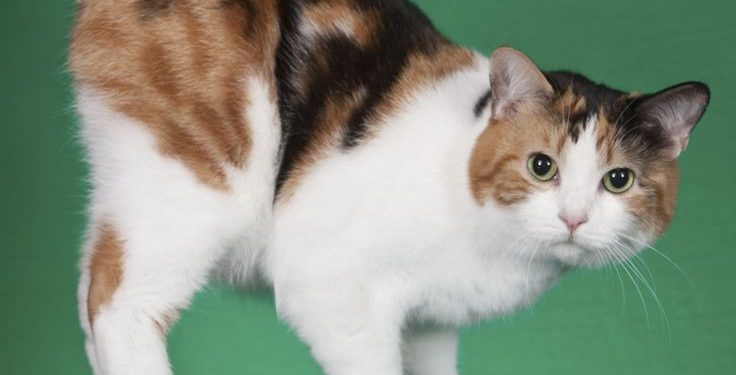
Cats are one of the animals most often used as people pets. His face is adorable and agile but spoiled is able to make people melt to maintain it.
A healthy cat is usually still able to perform physical activities like cats in general, such as running, jumping, playing, and others cats’ behaviour that can shown without owner there.
However, it is not uncommon for cats to suddenly change their behavior to be less active than usual. Sometimes cats look lethargic, have no energy, even lose their appetite.
Apparently, this can be caused by a disease in cats. Cats like humans who can also be affected by disease. Cat disease is very numerous, ranging from those that attack the skin, eyes, internal organs, or other organs.
Some diseases are truly dangerous and contagious to one another. But, there are also diseases that very often occur in cats.
This disease that often arises is not dangerous, but it really disturbs your cat’s activity. What are they? This article will discuss the 6 most common diseases in cat and the solutions you can use.
1. Vomiting
Vomiting is a disease or health problem most often experienced by our cats. Usually, cats will vomit food or liquid in their bodies, like humans.
The cause of cats vomiting can be due to many things, such as cats eating poisonous food or eating objects that should not be eaten. In addition, urinary tract disorders and diabetes can also be a cause of cat vomiting.
Cats that are constantly vomiting can become dehydrated. If your cat continues to vomit and looks unwell, then you need to take your cat to the vet so that he can be helped immediately. Who knows if your cat has another disease.
2. Feline Lower Urinary Tract Disease
Approximately three percent of cats found by veterinarians must have lower urinary tract disease or what is often referred to as Feline Lower Urinary Tract Disease (FLUTD).
Male cats and female cats are equally at risk of developing this disease. Typically, FLUTD will infect overweight cats or stressed cats. You can reduce stress level of your cat by using boarding facility.
Symptoms of this disease are usually in the form of bloody urine, urinating in an unusual place, no appetite, vomiting, often licking the area to urinate, and look depressed and you have to know signs of depressed cats. .
If your cat does experience these symptoms, you should immediately consult a veterinarian as a solution because veterinarian is so important, especially for millenials.
3. Fleas
Fleas become a problem that is often encountered by cat owners. The cause of fleas is usually caused by cats less clean condition of the cat.
Signs of fleas include flea droppings on the skin that look like little black dots. In addition, cats are also often seen scratching and licking their bodies continuously. If it is severe, the cat’s skin can be red or irritated.
In fact, not infrequently an infection will appear on the skin of fleas in cats. If not treated immediately, the cat can become anemic. So, it must be treated immediately by using ointments to treat Scabies. You can also give vitamin E to your cat for treatment.
4. Tapeworms
The next cat health problem is tapeworm. Tapeworms usually live in the small intestine of cats and are able to grow to 60 cm long.
Symptoms experienced by cats with tapeworms are frequent vomiting and weight loss. Sometimes, there are foreign objects such as grated coconut in your cat’s poop.
If indeed your cat has been confirmed to have tapeworms, you can buy worm medicine for your cat at the nearest petshop. In addition, you can also consult a veterinarian if you really can’t handle it yourself.
5. Diarrhea
Cats can also get diarrhea like humans. The cause of cats suffering from diarrhea is almost the same as humans, namely eating rotten food, intestinal parasites, allergies, infections, and so on.
Diarrhea in cats can last for months. The first aid you can do to treat your cat with diarrhea is to provide fresh water so it is not dehydrated.
After that, you can take your cat to the veterinarian if the diarrhea gets worse and is accompanied by other symptoms, such as bloody stools, fever, lethargy, loss of appetite, and prolonged diarrhea.
6. Eye problems
The cat’s eye part also seems to be a very sensitive part. Various diseases such as conjunctivitis, corneal ulcers, cataracts, glaucoma, trauma, inflammatory viruses, and retinal diseases can affect cats.
Symptoms experienced by cats with eye diseases, such as watery eyes, cloudy eyes, watery-looking eyelashes, and red or white eyelid layers.
In addition, spots often appear in the corners of the eyes, constantly rubbed the eyes, and the appearance of a third eyelid.
How to treat cats that experience symptoms of eye disease is to provide cat eye drops that you can buy at the nearest petshop. However, if the cat’s eye disease does not go away, then you should take it to the nearest vet.
That was a little explanation about the diseases that often occur in cats and their solutions. Hopefully it can be useful and be increasingly concerned with the condition of your beloved cat.
